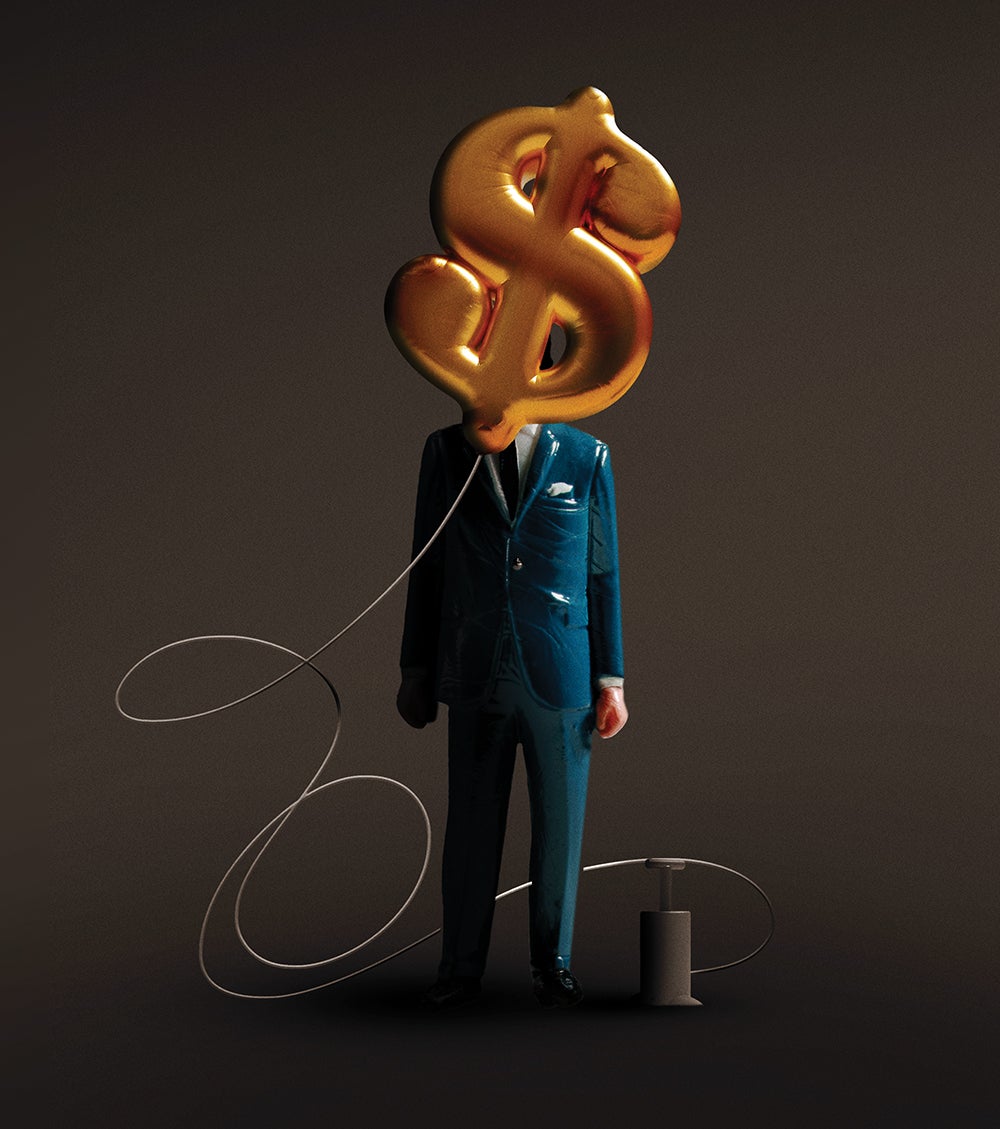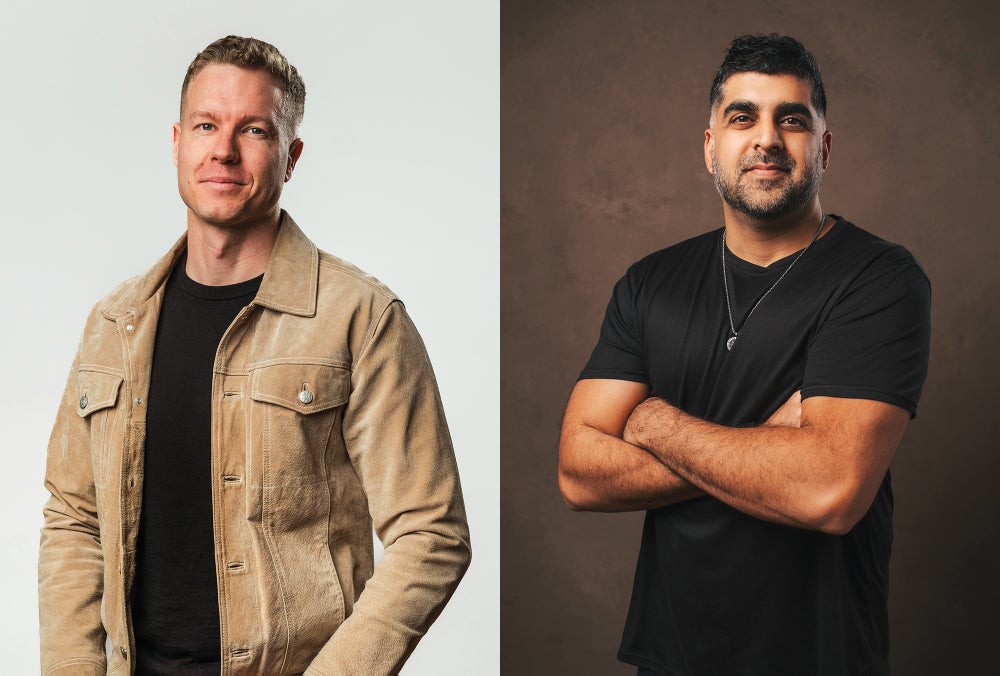To Make Your First Million Dollars, Draw Up This Venn Diagram: 'You Want to Fall Right In the Middle. If You Do, I Think It'll Take 5 Years' The hosts of 'My First Million' believe anyone can make it happen if they follow this formula.
By Jason Feifer
This story appears in the May 2024 issue of BIZ Experiences. Subscribe »
Sam Parr and Shaan Puri think in millions. They've both had notable exits for many millions (Parr sold his newsletter company The Hustle to HubSpot, and Puri sold his video streaming company Bebo to Twitch). Together, they cohost the chart-topping podcast My First Million, where they kick around business ideas with successful BIZ Experiencess.
Both agree: A million dollars sounds sexy, but it's not an end goal. "When you have a million bucks, you're not making tons of investments," Puri says. "You can't just live off it forever, unless you're living a really minimalist life. So you should ask the question, 'At what thresholds do things actually change, versus what are the arbitrary numbers that just sound good?'"
Here, they discuss the true value of a million dollars, and the strategic path to your first million (and many more).
Related: What to Watch - The Most Inspiring Shows for BIZ Experiencess

Does a million mean anything, really?
Shaan: For most of what you want, you either need far less than a million or far more than a million. A million is almost this dead zone where nothing happens.
Because the reality is, money is a tool. It has no use on its own, except that it can give you some amount of freedom. And there are different numbers. Let's say you have $250K in the bank. You might have the freedom to take a shot — like, "I can work on something and not make a dollar for the next 24 months, or 36 months." That's great. It's not forever money, but it is two-plus years of not having to answer to anybody. You give yourself that runway.
The next marker is "never need to work again" money, which is, like, $10 million. In the first part of your career, you're trading your time for money — but after $10 million, your money works for money, and you work for you. You can do whatever you want.
Calculate how much the things you want cost, and then set your targets, break that into chunks, and break those into the first milestones you want to achieve — with the most important one being: "How much money do I need to be able to quit my job, go be an BIZ Experiences, and give myself two years of runway?"
How did you make those calculations?
Sam: I've had a spreadsheet since I was 22 years old, when I had very little money. I would track my monthly expenses against how much money I had saved. I'd say, "When I have zero income coming in, this is how many months I have." My goal was to make that number of months go up. And I came up with a number [for how much to save so I didn't have to work again, based on expenses]. I did that by speaking to a bunch of wealthy people about their expenses, and decided I should try to save up around $18 million.
I read a bunch of books and noticed a trend amongst people who I admire — Travis Kalanick, Mark Cuban, a handful of others. They sold a business at a young age, between their late 20s and 30s, to get that number. That made it much easier for them to do their big thing. So I said, "Instead of trying to build a business that I'd raise tens or hundreds of millions for in VC, I bet that in five years, I could start a business that nets me the number that I need." And I used to track it all religiously on Google Sheets.
That is remarkably strategic.
Sam: Here's why: When you create rules to play, and when you figure out the rules of the game, it's far less stressful and more exciting to play the game.
Shaan, did you have a similar approach?
Shaan: When I was young, I was like, "By the time I'm 30, what do I want? I want to have a million bucks in my bank account. I want to make Forbes 30 Under 30. I want to do this, I want to do that." Then, fast- forward — I'm 29, and I have an existential crisis. I think, Damn, I'm behind schedule. I do not have a million dollars. I am not Forbes 30. It didn't feel good. And I was like, "Alright, I have two choices. Either I can keep telling myself I'm behind, or I could be like, 'Are you joking? I got my whole life ahead of me. Everything I've done so far is preparing me to do the things I want. And some of these goals were stupid. I should rewrite these goals to be what I actually believe now, not what my 20-year-old self thought was cool.'"
That was a psychological turning point in my life. As soon as I did that, the floodgates opened. All of a sudden, I came up with different ideas. I ended up selling my company. By 31, I was a multimillionaire.
Related: 5 Habits That Made Me a Millionaire by 25

There was an intentionality to both of your answers. The choices that you made were different, but there was a reason you took the steps you did.
Sam: Shaan and I came up with this idea called ABZ. When you're starting something, you think about Z, which is the end of the journey. It's exciting and awesome inspiration and motivation to get up each morning. But besides that, you should only focus on the letter A and the letter B — because you get
your first customer and then get your second customer, and then worry about everything in the middle.
How do you think people should evaluate whether they've built the right path to millions?
Shaan: I've found that, in my life, most people are trapped by inertia. An object in motion stays in motion. My mentor told me, "You have to be really careful, because you'll just wake up tomorrow and do the same thing you've been doing — not because it's the best thing to do, but because it's the thing you've been doing."
To guard against that, I decided to err on the other side of it — which is to say that unless it's a hell yes, and unless I'm feeling a high conviction about something, it's a no. That doesn't necessarily mean something is going well. Sometimes things feel very right to me, even though they haven't taken off yet. But I will bias toward change more than the average person. Sam, you're kind of different, right?
Sam: The way I think of it is — have you ever heard the Japanese term ikigai? It's basically a Venn diagram of: What does the world want, what does the world want to pay for, what am I skilled at, and what am I passionate about? I think far too often, people try to fall into one or two of the buckets — like, what does the world want, and what do I like doing? But what if you still suck at it, and no one wants to pay for it?
You want to fall right in the middle. And if you do, I don't think it's that challenging to make your first million. I think it'll take five years. The challenging part is being willing to dedicate 40 hours a week for five years.
In both your answers, you're describing a kind of useful interrogation — looking deeply at why you're doing something.
Sam: Well, yeah, it's just being honest and only being the right type of crazy. You definitely need a little craziness in you, but the correct flavor of crazy.












